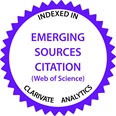Tytuł
Aktorzy społeczni w organizacji na rynku doznań. Etnografia ról organizacyjnych w cyrku
Abstract
The subject of the article is the relations between chief social actors that occur in the organizational frames of roles performed by the actors in the artistic-cultural organization existing in the experience economy. The object of studies carried out by a group of students of the University of Warsaw is the Polish Circus Organization. The circus can be seen as a marginal phenomenon, going beyond the mainstream of management studies. Throughout centuries, often in extremely difficult conditions of the functioning of circus organizations, the members of the organisations developed extraordinary abilities of adaptation to inconvenient environment, and these are supposed to compose the area of research on the organizations. A very popular approach to the customer these days, called experience economy, has been for ages a characteristic modus vivendi of this kind of organization. In the organization being studied, we have observed three groups of social actors whose members exert a fundamental influence on the functioning of the circus. Animals are a special kind of actors in the circus, and relations between them and circus workers mark a specific space in the social structure. The influence of animals on the organization and environment is analyzed in three basic areas: their meaning for the functioning of the organization as a whole, their emotional influence on the circus audience, especially children, and their conditioning the work and life of the other actors in the organization.
Abstrakt
Przedmiotem artykułu są relacje między głównymi aktorami społecznymi, zachodzące w ramach ról organizacyjnych przez nich odgrywanych, w organizacji artystyczno-kulturalnej działającej na rynku doznań. Obiektem badań prowadzonych przez studentów Uniwersytetu Warszawskiego jest polska organizacja cyrkowa. Cyrk należy do zjawisk marginalnych, wykraczających poza popularny obszar zainteresowań nauki o zarządzaniu. Na przestrzeni wielowiekowej historii, często w niezwykle trudnych warunkach funkcjonowania cyrkowych organizacji ich członkowie wykształcili ponadprzeciętne zdolności adaptacji w niesprzyjającym środowisku, które zasługują na uwagę w obszarze badań nad organizacjami. Bardzo popularne obecnie podejście do klienta zwane zarządzaniem na rynku doznań było już od dawna charakterystycznym modus vivendi tego rodzaju organizacji. W badanej organizacji zaobserwowaliśmy trzy grupy aktorów społecznych, których członkowie wywierają zasadniczy wpływ na funkcjonowanie cyrku. Szczególną grupą aktorów są w cyrku zwierzęta, a relacje pracowników z nimi wyznaczają specyficzną przestrzeń struktury społecznej. Wpływ zwierząt na organizację i otoczenie rozpatrujemy na trzech podstawowych płaszczyznach: znaczenia dla funkcjonowania organizacji jako całości, oddziaływania emocjonalnego na publiczność, zwłaszcza dziecięcą, oraz warunkowania pracy i życia pozostałych aktorów w organizacji.
Recommended Citation
Kruk, E., & Kłos, A. (2011). Social actors of the artistic-cultural organization in the market of experience. Ethnography of the organizational role in the circus. Problemy Zarządzania, 9(32), 172-192. Retrieved from https://press.wz.uw.edu.pl/ems/vol9/iss32/10
First Page
172
Last Page
192
Page Count
20
Publisher
University of Warsaw







